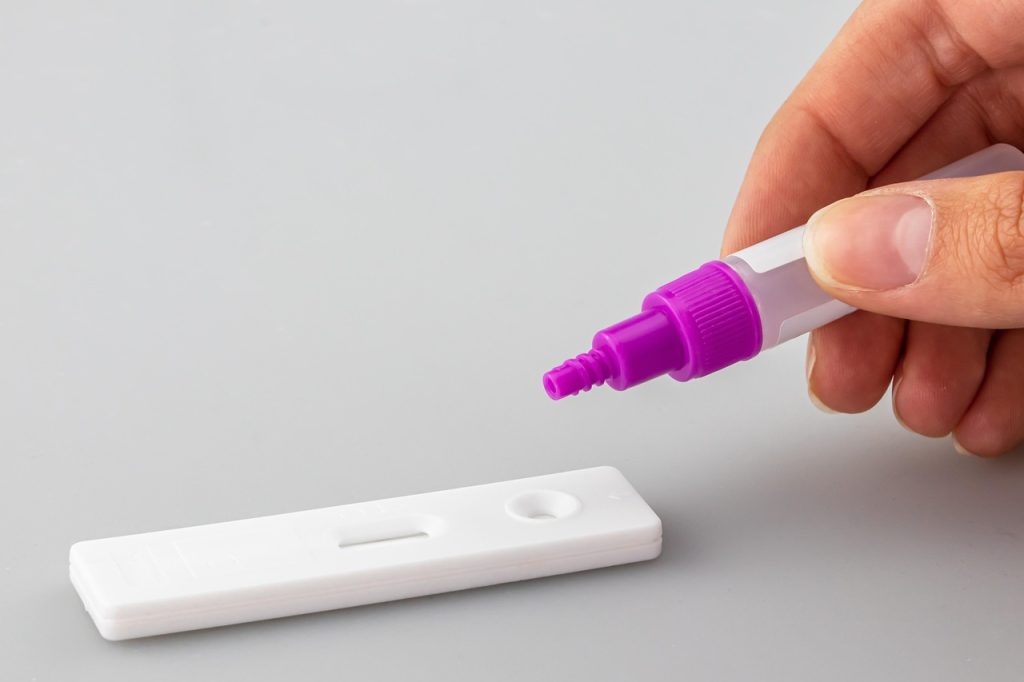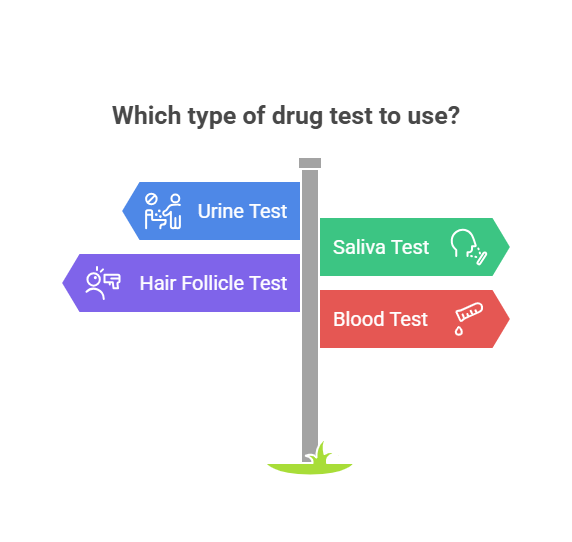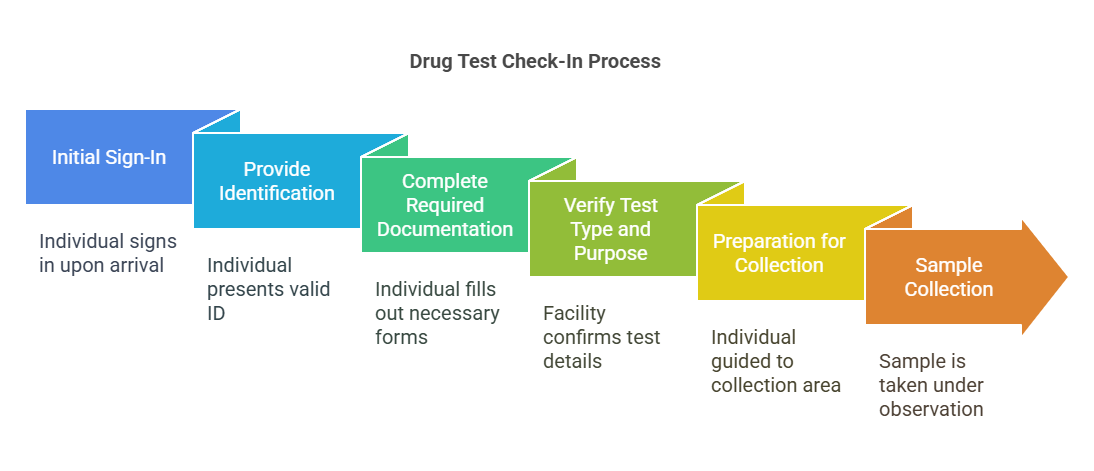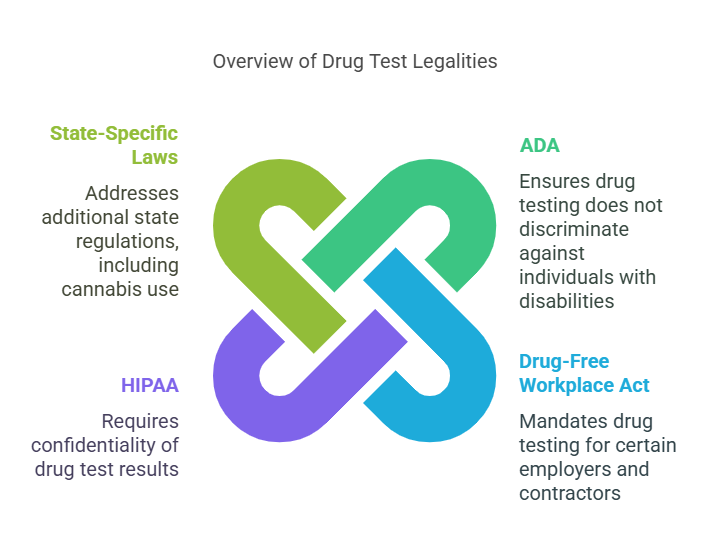Essential Tips for Drug Test Check-In Success

Introduction to Drug Test Check-Ins
A drug test check-in refers to the process of registering an individual before undergoing a drug test. It serves as a key protocol to ensure the integrity and security of the testing procedure. In a drug test check-in, the individual is officially logged into the system, required paperwork is completed, and proper identification is verified before the test is conducted. This step is particularly important in environments where drug testing is mandated by employers, schools, or healthcare organizations, as it ensures the accuracy and fairness of the results.
Why Are Drug Test Check-Ins Important?
Drug test check-ins are essential in ensuring the testing process is transparent, secure, and consistent. They help minimize the risk of tampering or cheating, providing a level of accountability. Additionally, check-ins help to maintain the confidentiality of the test results and ensure the individual undergoing the test is properly identified.
In industries such as healthcare, transportation, and government, drug tests are a critical part of regulatory compliance. The check-in process helps organizations meet their legal requirements and ensures that testing is performed under the correct conditions. It also ensures that those taking the test understand the rules and regulations, creating a fair and consistent process for everyone involved.
Types of Drug Tests

Several types of drug tests are commonly used across different industries. Understanding the differences between them is crucial when discussing drug test check-ins.
- Urine Drug Test: This is the most common method of testing. It involves the collection of urine to check for traces of illegal substances or prescription drug misuse. During a drug test check-in, a secure environment is ensured to prevent tampering with the sample.
- Saliva Drug Test: A less invasive method, saliva drug tests detect substances in the saliva, and are often used for random testing or when immediate results are required. The check-in process helps ensure that the sample is collected without contamination.
- Hair Follicle Drug Test: This test uses a small sample of hair to determine drug use over a longer period, typically 90 days. Hair follicle drug tests are more difficult to cheat, and check-ins help prevent manipulation of the sample.
- Blood Drug Test: Though less common, blood tests are sometimes used in medical settings or in cases of suspected intoxication. Check-ins help ensure that the correct procedure is followed when collecting and handling the sample.
Why Are Drug Test Check-Ins Critical?
Drug test check-ins are pivotal in preventing tampering or cheating during the testing process. Here are some reasons why:
- Prevents Substitution: Check-ins help confirm that the individual submitting the sample is the same person who is scheduled for the test.
- Prevents Contamination: A controlled check-in process ensures that the sample is not contaminated and that the testing environment meets the necessary standards.
- Maintains Accuracy: Check-ins help ensure that the right procedures are followed during sample collection, which is vital for obtaining accurate test results.
By following drug test check-in protocols, employers and testing facilities can avoid issues such as false results, fraud, or even litigation related to improper testing procedures.
Step-by-Step Process of Drug Test Check-Ins

The drug test check-in process is designed to be streamlined and ensure that everything is completed correctly before testing begins. Here’s a general overview of the typical process:
- Initial Sign-In: Upon arrival at the testing facility, the individual is required to sign in. This confirms their identity and notifies the facility that they are ready for the drug testing process.
- Provide Identification: The person will be asked to present a valid form of identification (e.g., driver’s license, employee ID, or passport). This step ensures that the correct person is undergoing the test and prevents any issues with identity.
- Complete Required Documentation: Depending on the facility and the nature of the test, individuals may be asked to fill out paperwork, including consent forms or questionnaires. This paperwork informs the individual about the test and any potential consequences of drug use.
- Verify Test Type and Purpose: The facility will confirm what type of drug test will be conducted (urine, saliva, hair follicle, etc.) and its purpose (pre-employment, random, post-accident, etc.).
- Preparation for Collection: Once the paperwork is complete, the individual is guided to the collection area. The technician ensures that the environment is sterile, and all materials required for the test are present.
- Sample Collection: Depending on the test type, a sample is taken (urine, saliva, blood, etc.). The technician may observe the process to ensure the sample is correctly obtained and tamper-free.
- Sample Sealing and Labeling: After the sample is collected, it is sealed and labeled with a unique identifier to avoid any mix-ups. This step ensures that the sample is kept anonymous and confidential.
- Results Processing: Once the sample is collected, it is sent to the laboratory for analysis. The results are usually processed in a matter of days, depending on the test type.
Importance of Drug Test Check-Ins
Conducting drug tests through proper check-ins is not just about following a procedure; it plays a crucial role in ensuring that the test results are both reliable and legally compliant. Below are some of the key reasons why drug test check-ins are essential:
- Maintaining Confidentiality: The check-in process is designed to protect the privacy of the individual undergoing the test. By verifying identities and securely handling samples, organizations can ensure that the test results are confidential and only shared with authorized personnel.
- Security and Safety: Drug test check-ins help prevent any tampering or adulteration of the sample. This ensures the integrity of the results and provides a fair testing process.
- Regulatory Compliance: Many industries are required to adhere to strict drug testing protocols set forth by government agencies or regulatory bodies. Check-ins help ensure compliance with these regulations, protecting both employees and employers from legal complications.
- Consistency in Testing: By standardizing the check-in process, facilities ensure that every individual is subject to the same conditions, ensuring fairness and consistency in drug testing.
- Building Trust: For employers, drug testing helps create a safe and productive workplace. For employees, knowing that drug testing is conducted fairly and consistently helps foster a culture of trust and accountability.
Exact Background Checks and Drug Test Check-Ins
At Exact Background Checks, we provide a comprehensive suite of background screening and drug testing services tailored to meet your organization’s needs. Our drug test check-ins are designed to ensure compliance, confidentiality, and integrity throughout the testing process. From the initial sign-in to the final test results, we follow all necessary protocols to guarantee that your drug testing process is as accurate and reliable as possible.
Legal Aspects of Drug Test Check-Ins

There are several legal considerations regarding drug test check-ins that employers and individuals need to be aware of:
- Americans with Disabilities Act (ADA): The ADA prohibits discrimination against individuals with disabilities. Employers must ensure that drug testing procedures do not unfairly target individuals with disabilities and should provide accommodations when necessary.
- Drug-Free Workplace Act: This act requires federal contractors and certain employers to maintain a drug-free workplace. It mandates drug testing and outlines policies for handling failed tests.
- Health Insurance Portability and Accountability Act (HIPAA): Employers must ensure that drug test results remain confidential and comply with HIPAA regulations, especially if the testing is related to healthcare or workplace safety.
- State-Specific Laws: In some states, additional regulations may apply, such as laws related to cannabis use, especially as more states legalize marijuana for recreational or medicinal use. Employers should stay updated on local laws to ensure they are in compliance.
Frequently Asked Questions (FAQs)
What should I expect during the drug test check-in process?
The process typically involves signing in, providing identification, completing consent forms, and undergoing a sample collection. A technician will guide you through each step to ensure everything is done properly.
Can I fail a drug test if I take prescription medication?
Yes, prescription medications may show up in drug tests, but they won’t necessarily lead to a failed test. It’s important to inform the testing facility about any medications you’re taking prior to the test.
How long do the results of a drug test check-in take to process?
Results typically take a few days to process, depending on the type of test and the lab’s processing time.
Are drug test check-ins required for all employees?
Drug test check-ins are not required for all employees but may be part of company policy for pre-employment screening, random testing, or following an incident (such as an accident).
What happens if I refuse to participate in a drug test check-in?
Refusing to participate in a drug test can result in consequences such as termination of employment, rejection of a job offer, or other disciplinary actions, depending on the policies of the organization.
Conclusion
Drug test check-ins are a vital part of the drug testing process, ensuring that the test is conducted properly and that the results are accurate and secure. By following established check-in protocols, employers can create a fair, consistent, and compliant environment for drug testing, while employees can feel confident in the integrity of the process. Exact Background Checks offers professional drug test check-in services to help ensure your testing procedures are legally compliant and effective. With our trusted expertise, you can maintain a drug-free, safe, and compliant workplace.



